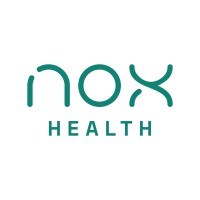Vestar Named to Mergers and Acquisitions 2023 Best Places to Work in Private Equity Awards as an Honorable Mention
Mergers & Acquisitions is recognizing eight firms for the inaugural Best Places to Work in Private Equity. The latest in our award series honors private equity firms who stand out amongst their peers in demonstrating leadership and innovation in their workplace cultures, policies and internal operations. They have also taken proactive measures to adapt to the changing demands of a post-pandemic world, as well as building environmental, social, and governance (ESG) and diversity, equity and inclusion (DEI) programs at their firms and portfolio companies.
Our awards program continues to evolve with the industry. Given that ESG is now more commonplace in private equity, and the growing prevalence of DEI, we decided to incorporate some of the criteria from our PE Innovators in ESG and M&A Leaders in DEI awards into the newly-minted Best Places to Work in PE. Consequently, we retired the standalone ESG and DEI awards.
To determine the winners, nominees were asked to detail how they stand out from competitors when it comes to retaining top talent, work-life balance, training, compensation, benefits, career mobility and leadership assessment. Nominees were also asked to describe how they implement and continue to grow ESG and DEI policies and programs.
The firms we are honoring include relatively new and longstanding PE shops. They were founded anywhere from five to more than 50 years ago. The combination of the traits that make them a great place to work range from an emphasis on professional development to lifestyle benefits, such as new parents being granted generous parental leave. All share an ongoing commitment to ESG and DEI.


Circana Appoints Anne Bramman as Chief Financial and Growth Officer
CHICAGO – June 6, 2023 – Circana, the world’s leading advisor on the complexity of consumer behavior, today announced the appointment of Anne Bramman as chief financial and growth officer, effective June 20. As a member of Circana’s executive leadership team, Bramman will lead both the finance and strategy teams, identifying new ways for the company to continue achieving sustainable growth.
“Anne is a seasoned executive with a strong track record of success leading the finance strategy for global, consumer brand organizations,” said Kirk Perry, CEO of Circana. “Her perspective and leadership will be incredibly valuable as we continue to unlock the full potential of Circana for all of our stakeholders. We are thrilled to welcome Anne to our team, and I look forward to working closely with her to execute our bold vision for growth and value creation.”
“I am proud to be joining Circana at such an exciting time for the company,” said Anne Bramman. “Circana has built a strong foundation for growth – with unique capabilities, vast data assets, industry-leading technology, and best-in-class talent – backed by renowned investors. I look forward to partnering with Kirk and the Circana Board and leadership team to continue Circana’s momentum.”
Perry added, “On behalf of the Circana Board and leadership team, I want to thank Holly Knightly, who has served as Circana’s interim CFO since November 2022, for her tremendous work as interim CFO. We are grateful that Circana will continue to benefit from Holly’s expertise as a senior leader within our finance organization moving forward.”
About Anne Bramman
Bramman is a seasoned executive with more than 30 years of experience in senior financial roles at consumer branded companies. She joins Circana from Boston Consulting Group (BCG), where she worked as a senior advisor. Prior to that, Bramman served as CFO of Nordstrom, Inc. from 2017 to 2022, where she led financial strategy and operations, private label credit card operations, business development, and strategic sourcing, delivering significant profit opportunities for the company. Before Nordstrom, Bramman served as CFO of Avery Dennison Corporation and Carnival Cruise Line after serving in senior financial roles at L Brands Inc. She currently serves on the Board of Directors of McCormick & Company and is a member of its Audit committee.
Bramman has earned numerous notable awards for her achievements throughout her career, including being named a member of Fortune’s Most Powerful Women and named the 2019 CFO of the Year by the Puget Sound Business Journal. She received a BBA in accounting from Texas Christian University and an MBA from University of California, Los Angeles.
Nox Health Acquires Somryst, the Only FDA-Cleared Digital Insomnia Treatment
ALPHARETTA, Ga. , May 25, 2023 (GLOBE NEWSWIRE) -- Nox Health, a global sleep health leader, has acquired Somryst, the first FDA-cleared Prescription Digital Therapeutic (PDT) that delivers effective, first-line treatment for adults with chronic insomnia. This acquisition deepens the Nox value-based healthcare programs, as it seeks to reframe sleep as a critical and powerful intervention strategy for chronic health conditions management.
“The acquisition of Somryst aligns seamlessly with Nox's mission of promoting science-based solutions that address chronic diseases through sleep care management. As an outcomes-driven company with ten years of real-world data, it was important for us to find a solution with equal depth in validation and outcomes data, thereby setting it apart from other CBT-I solutions,” said Sigurjon Kristjansson, CEO of Nox Health.
Insomnia is a highly prevalent complaint associated with significant adverse health outcomes. CBT-I is recognized as the treatment of choice, but it remains underutilized due to lack of therapists with adequate CBT-I expertise. By delivering CBT-I via a mobile application, Somryst offers health care providers a novel treatment delivery modality to enhance the treatment of chronic insomnia for patients who lack access to clinician-delivered CBT-I.
Use of Somryst durably improves insomnia symptoms in adults with chronic insomnia who do not have contraindicated sleep, medical, and/or psychiatric disorders. Pivotal study results show that over 40% of Somryst-treated patients no longer met criteria for chronic insomnia post- treatment, and over 60% demonstrated a clinically meaningful insomnia treatment response with no adverse events reported.
With outcomes that speak for themselves, Somryst represents a promising clinical modality for the treatment of adults with chronic insomnia who are receiving standard outpatient care.
Nox aims to bring Somryst to a wider audience, starting with its existing Enterprise client base and expanding to other opportunities throughout their business. This marks a major milestone in the Nox growth journey and will further scale their future success.
360training Acquires ACLS Medical Training & Safety Provisions - Extending Healthcare & EHS Offerings
AUSTIN, Texas, May 19, 2023 /PRNewswire/ -- 360training, a leading online regulated training provider, has acquired ACLS Medical Training and Safety Provisions (owners of the brand Hard Hat Training), two well-respected providers of medical training and workplace safety, respectively. Through these acquisitions, 360training will accelerate it's goal of helping to provide safer, more productive work environments that protect employees and customers, benefiting everyone.
By integrating the content and expertise of ACLS Medical Training and Safety Provisions into its existing platform, 360training will provide learners with an even more comprehensive range of courses and certifications across multiple industries. Tom Anderson, CEO of 360training, explains what drew him to these companies:
"We are excited to welcome ACLS Medical Training and Safety Provisions to the 360training family. Their expertise in workplace safety and medical training complements our existing offerings and strengthens our position as a leading provider of online training solutions."
The acquisitions are part of 360training's strategic growth plan to expand its course offerings and reach more learners across different industries. "Our mission at 360training is to help improve, inform, and maintain the condition, health, and safety of all workers, and our passion is universal. The acquisition with ACLS and Safety Provisions will aid us in reaching more workers than ever before," adds Samantha Montalbano, COO Health and Safety Advocate of 360training.
With a more extensive course catalog and a wider range of certifications, the company is well positioned to help learners across multiple industries achieve their professional goals and meet regulatory requirements. 360training is supported in it's growth initiatives through the strategic equity partnership with GreyLion Partners LP and Vestar Capital Partners.
Why Choose Safety Provisions?
360training acquired Safety Provisions mainly because the same goals fundamentally drive the two companies. They share the mission of reducing workplace accidents and fatalities by providing easily accessible, high-quality online safety training solutions.
In addition, all Safety Provisions courses are:
- OSHA Compliant
- User Friendly
- 100% Online
- Affordably Priced
Why Choose ACLS Medical Training?
ACLS Medical Training's online courses are crafted with the same care and attention to detail that 360training demands for all its courses. By acquiring ACLS Medical Training, 360training adds to its library of healthcare courses, with the additions of the following courses for medical professionals:
- Advanced Cardiovascular Life Support
- Basic Life Support
- Pediatric Advanced Life Support
- Neonatal Resuscitation Program
About Safety Provisions
Safety Provisions, Inc. is dedicated to improving workplace safety through comprehensive training and promoting an engaging safety culture. The company is best known for establishing the brand Hard Hat Training. With a vision to eliminate accidents and fatalities in the workplace and an elite team of EHS experts, Hard Hat Training offers instruction and training resources to companies of all sizes.
About ACLS Medical Training
ACLS Medical Training empowers individual paramedics, nurses, physician assistants, nurse practitioners, and physicians to improve safety in hospitals. Their goal is to teach medical professionals in an innovative learning experience that helps to enhance the systems of care that save lives.
Hennepin Partners acted as ACLS Medical Training's exclusive advisor through this acquisition.
Nox Health Announces Strategic Investment from Vestar Capital to Accelerate Growth
ATLANTA and NEW YORK, Nov. 30, 2022 (GLOBE NEWSWIRE) -- Nox Health (or the “Company”), the global sleep health leader, announced today a strategic growth investment from Vestar Capital Partners, a leading U.S. middle-market private equity firm. The investment will help Nox accelerate development of its sleep diagnostic technology and services, and adoption of its value-based comprehensive sleep management solutions for employers and health plans. Financial terms of the investment were not disclosed.
“We are delighted to welcome Vestar as a strategic investment partner to help us accelerate our growth. We were looking for a partner with relevant and credible experience and found it in Vestar,” said Nox Health CEO Sigurjon Kristjansson. “Today’s fee for service healthcare economy places the onus on the consumer to navigate a gated health care experience — especially detrimental to sleep health. At Nox, we enable a consumer-centric experience, leveraging our state-of-the-art technology portfolio and value-based sleep management solutions to simplify access, reduce costs and improve health outcomes.”
“Lack of sleep is a silent killer. Sleep disorders are comorbid with seven of the 15 leading causes of death,” said Roger Holstein, Managing Director at Vestar Capital Partners. “Nox is not only a global leader in the science of sleep diagnostics, but it has also created a value-based, comprehensive sleep care management program which fulfills all the objectives of the healthcare ‘Triple Aim’ — a frictionless member experience, with demonstrated health outcomes at a measurably lower cost. We are excited to partner with Sigurjon and the entire Nox team to accelerate the Company’s mission and help millions of people wake up to a brighter world.”
“Sleep is an attractive healthcare category with sustainable long-term growth tailwinds and significant unmet demand,” said Mike Vaupen, Managing Director at Vestar Capital Partners. “Nox has built a differentiated and market-leading set of diagnostic devices, workflow software, and value-based care management services that support a patient’s entire sleep care journey. We look forward to supporting the Company in its next phase of growth.”
Canaccord Genuity served as financial advisor to Nox Health, and Bryan Cave Leighton Paisner LLP acted as its legal counsel. Solomon Partners served as financial advisor to Vestar, and Kirkland & Ellis LLP provided legal counsel.
About Nox Health
Nox Health is a global sleep health leader on a mission to improve the health of populations through better sleep. Every year, more than three million people in 50 countries benefit from Nox products and services. Headquartered in Atlanta, Georgia, and with operations in Reykjavík, Iceland and Denver, Colorado, Nox provides a range of solutions from comprehensive sleep diagnostic technology for providers to value-based comprehensive sleep management programs for self-insured employers and payers. For more information on Nox, please visit www.noxhealth.com.
Simple Mills Appoints Sheryl O'Loughlin to Board of Directors
CHICAGO--(BUSINESS WIRE)--Simple Mills, the company on a mission to advance the holistic health of the planet and its people through delicious, better-for-you foods, today announced the addition of CPG industry veteran, Sheryl O’Loughlin, to its Board of Directors. O’Loughlin is an accomplished entrepreneur, CEO, author, and board member bringing extensive experience leading fast-growing, innovative consumer products companies. In her new role, O’Loughlin will provide strategic counsel and guidance to help support Simple Mills in scaling the company to the next level, creating opportunity for the brand to have a greater positive impact on its mission to advance the holistic health of the planet and its people.
A seasoned leader with more than 30 years of experience scaling CPG companies, O’Loughlin previously served as the CEO of both Clif Bar & Company and REBBL, and Co-Founder and former CEO of Plum Organics. During her time at REBBL, a super herb adaptogen beverage, O’Loughlin architected a product innovation, distribution, and velocity strategy that grew revenue 23-fold and increased margins by 20 points. This growth allowed the brand to work toward a regenerative, just supply chain and donate $1 million to Not For Sale, a nonprofit dedicated to co-creating a future without human trafficking. Alongside her outstanding leadership roles, O’Loughlin shares her entrepreneurial skillset with the Simple Mills team as the former Executive Director for the Center of Entrepreneurial Studies at the Stanford Graduate School of Business and author of “Killing It: An Entrepreneur’s Guide to Keeping Your Head Without Losing Your Heart.” She also has experience serving on several other notable CPG brands boards, sitting currently on the boards of PetIQ, Inc. (Nasdaq: PETQ), Miyoko’s Creamery, and S. Martinelli & Co. In this new role, O’Loughlin plans to draw on her expertise to amplify Simple Mills’ mission to pioneer the way the world eats by crafting food with purposeful ingredients intentionally selected to help advance the health of both people and planet.
“I am honored to be part of the highly-esteemed Simple Mills Board of Directors, especially on the heels of a successful growth year for the company,” said O’Loughlin. “I’m a longtime fan of the brand and particularly appreciate how Simple Mills honors the intersection of people and planetary health by utilizing nutrient-dense ingredients and adopting a unique approach to regenerative agriculture that have the potential to build healthy soil. It’s my passion to assist companies like Simple Mills in scaling their business in a way that aligns with their mission and values, while providing an example to other companies that an ethical business framework aiming to change our food system can be wildly successful. I've dedicated my time and effort to supporting talented leaders like Katlin Smith achieve their goals, and I'm thrilled at the opportunity to support the Simple Mills team on their journey to helping better the world.”
O’Loughlin joins Simple Mills Board of Directors alongside other leading experts in the space, including Amanda Steele, former Senior Vice President of Marketing at Annie’s and Numi Organic Tea; Dan O'Connell, Founder and CEO at Vestar Capital Partners; Kevin Mundt, Managing Director at Vestar Capital Partners; George Peinado, member at Hyde Park Angels; and Lew Semones former General Partner at Charlotte Capital Partners
Simple Mills better-for-you products are sold in more than 28,000 natural and conventional stores across the country. This includes national distribution with top U.S. retailers, including Whole Foods, Sprouts, Target, Walmart and Costco. In the last five years alone, Simple Mills has entered more than 20,000 new stores, increasing its brick-and-mortar availability by more than 300%. Aside from significant retailer growth, the brand also has a strong e-commerce presence both on Amazon and its own website. To learn more about Simple Mills, its commitment to advancing regenerative agriculture through ever-growing product innovations, and to find a retailer near you, please visit www.simplemills.com.
About Simple Mills
Founded in 2012, Simple Mills is a leading provider of better-for-you crackers, cookies, snack bars and baking mixes made with clean, nutrient-dense ingredients and nothing artificial, ever. Celebrating its tenth anniversary this year, the company has disrupted center-aisle grocery categories to become the #1 baking mix brand, #1 cracker brand, #1 cookie brand in the natural channel1 with distribution in over 28,000 stores nationwide. Its mission is to advance the holistic health of the planet and its people by positively impacting the way food is made. For more information, visit www.simplemills.com.
Vestar Capital Partners Named to Inc.'s 2022 List of Founder-Friendly Investors
NEW YORK, Oct. 5, 2022 /PRNewswire/ -- Vestar Capital Partners, a leading U.S. private equity firm, today announced that it has been named to Inc.'s 2022 Founder-Friendly Investors list honoring the private equity and venture capital firms with the best track records of successfully backing entrepreneurs.
The list recognizes firms that entrepreneurs can trust and collaborate with while receiving the financial and strategic support they need to help accelerate growth. All the firms on the Inc. list have successful track records of remaining actively involved with the businesses in which they invest.
"Vestar is proud to once again be recognized by Inc. for our commitment to supporting founders as they unlock the growth potential within their businesses," said Dan O'Connell, Founder and CEO of Vestar. "Founders have many options when seeking a capital partner; working with a recognized firm that offers operational expertise, relationships, and a long-term perspective can be critical in achieving sustainable growth. Vestar is proud of our 30+ year track record of partnering with management to invest for growth, and we are eager to meet new entrepreneurs who can benefit from our partnership."
Vestar has invested nearly $3 billion in more than 25 founder- and family-owned companies since its inception in 1988, and its current portfolio consists of 10 founder-led businesses across Consumer, Business & Technology Services and Healthcare.
"Fully investing in an entrepreneur, and their innovative vision, involves far more than the financial investment. By developing relationships with and supporting entrepreneurs for the long-term, these private equity firms are more than investors, they're partners," says Scott Omelianuk, editor-in-chief of Inc. media.
Inc. compiled its list by surveying founders who have sold to private equity and venture capital about their experiences partnering with the firms, and examining data on how portfolio companies have grown during these partnerships.
Dr. Praeger's Sensible Foods Appoints John Sayour as Chief Financial Officer
ELMWOOD PARK, N.J., Sept. 29, 2022 /PRNewswire/ -- Dr. Praeger's Sensible Foods ("Dr. Praeger's" or the "Company"), a fast-growing brand specializing in delicious, nutritious plant-based frozen foods made from simple ingredients, announced that John Sayour has joined the Company as Chief Financial Officer. Dr. Praeger's is a portfolio company of Vestar Capital Partners.
"John brings over 30 years of diverse and progressive finance experience working for consumer goods companies. His deep experience with supply chain initiatives, his passion for developing talent, and his insights and analytics capabilities will be tremendous assets for the organization as we look to take advantage of strong tailwinds in the better-for-you food category," said Dr. Praeger's CEO, Andy Reichgut.
Mr. Sayour joins Dr. Praeger's from Blue Triton Brands, where he was Chief Transformation Officer and CFO of Supply Chain. Prior to that, he capped 22 years at Nestlé Waters as Vice President and CFO of Supply Chain. He was previously Director of Financial Reporting and Corporate Accounting at Fortune Brands, and he began his career as a Senior Auditor for Arthur Young. He holds a master's degree in finance and international business from the University of Connecticut School of Business and a bachelor's degree in accounting and computer science from SUNY University at Albany.
"Dr. Praeger's is uniquely positioned for success with an impressive portfolio of great tasting and health-sensible products, and I am very excited to be part of this talented team," said Mr. Sayour. "I look forward to working with Andy and the Dr. Praeger's team to find new ways to support the continued growth of the Company."
About Dr. Praeger's
For over 25 years, Dr. Praeger's Sensible Foods has offered delicious and convenient frozen food options for the whole family. Founded by two heart surgeons determined to make healthy food easily accessible, Dr. Praeger's is a leader in the all-natural, vegetarian, vegan, gluten free and kosher frozen food categories and has a wide range of products including Veggie Burgers, Bowls, Cakes, Puffs and Hash Browns, sustainable Seafood items, kids Littles and more. For more information visit www.drpraegers.com.
Pet Honesty Appoints Steve Chopp as Chief Financial Officer
AUSTIN, Texas, Sept. 27, 2022 /PRNewswire/ -- Pet Honesty, a trusted leader in premium pet health products, announced that Steve Chopp has joined the firm as Chief Financial Officer. Pet Honesty is a portfolio company of Vestar Capital Partners.
Mr. Chopp brings more than 20 years of experience in leadership roles at high-growth, health and nutrition companies. Most recently, he served as CFO and COO for Bragg Live Food Products, the number one brand of apple cider vinegar, where he oversaw the finance, supply chain, and technology functions. Additionally, Mr. Chopp spent more than 15 years working in the rapid growth supplements industry, including eight years at Pharmavite, the makers of Nature Made vitamins and supplements, where he served as EVP and CFO. He also held senior roles in consulting with L.E.K. Consulting and Stern Stewart & Co. Mr. Chopp holds an MBA from Indiana University's Kelley School of Business and a B.S. in finance from California Polytechnic State University-San Luis Obispo.
"Steve is an accomplished leader with broad experience developing and executing high-impact strategies. He will be an invaluable asset as we continue our mission to elevate pet vitality to deliver more joyful moments for pet parents," said Richard Greenberg, CEO of Pet Honesty.
"As Pet Honesty's recent partnership with Petco illustrates, the Company is on a strong growth trajectory, and I look forward to partnering with the senior team during this exciting time as the Company continues to expand and deliver on its strategic plan," said Mr. Chopp.
About Pet Honesty
Pet Honesty, a trusted leader in premium, natural pet health products, is on a mission to help pet parents elevate their pet's vitality for more joyful moments together. Founded originally as an innovative e-commerce brand in 2018 and headquartered in Austin, TX, the company specializes in vet-approved pet supplements made with natural base ingredients and premium active ingredients, providing functional pet health benefits backed by science and certified by the NASC. Pet Honesty products are formulated in an FDA registered facility in the U.S.A. and available for purchase online at Pethonesty.com, Amazon, Chewy, Petco.com, and at Petco retail stores nationwide and select neighborhood pet retailers. For personalized guidance and education about Pet Honesty products, visit Pethonesty.com and follow @PetHonesty on Facebook, Instagram, TikTok and LinkedIn.
About Vestar Capital Partners
Vestar Capital Partners is a leading U.S. middle-market private equity firm specializing in management buyouts and growth capital investments. Vestar invests and collaborates with incumbent management teams and private owners to build long-term enterprise value, with a focus on Consumer, Business & Technology Services and Healthcare. Since inception in 1988, Vestar funds have invested $11 billion in 89 companies – as well as more than 200 add-on acquisitions – with a total value of approximately $52 billion. For more information on Vestar, please visit www.vestarcapital.com.
Vestar Capital Partners Announces Promotions
NEW YORK, Aug. 15, 2022 /PRNewswire/ -- Vestar Capital Partners, a leading U.S. private equity firm, announced today the promotions of several investment professionals at the firm. The promotions include Neil Merchant, Mark Dirzulaitis, and Angela Yun to Principal, and Alex Veronneau to Vice President.
"We congratulate Neil, Mark, Angela and Alex on their promotions in recognition of their impressive growth, development and meaningful contributions to the Firm," said Dan O'Connell, Founder and CEO of Vestar. "We are fortunate to have such talented and resourceful young professionals who subscribe to our core values of hard work, creativity, transparency and teamwork."
Mr. Merchant, a member of the Firm's Business & Technology Services group, joined Vestar in 2018. He previously worked at Welsh, Carson, Anderson & Stowe focusing on healthcare and technology investments. Mr. Merchant holds both a BS in Economics, cum laude, and an MBA in Finance and Management, with Honors, from the Wharton School of the University of Pennsylvania.
Mr. Dirzulaitis, a member of the Firm's Business & Technology Services group, joined Vestar in 2019. Prior to Vestar, he worked at American Securities where he focused on private equity investments across a variety of sectors. Mr. Dirzulaitis began his career at Goldman Sachs, where he focused on growth equity investments in technology companies. He received a joint BA / MA from Johns Hopkins University, where he was elected to Phi Beta Kappa, and an MBA with Honors from the Wharton School of the University of Pennsylvania.
Ms. Yun, a member of the Firm's Consumer group, joined Vestar in 2019. Previously, she worked at Alliance Consumer Growth, a consumer- and retail-focused growth equity firm. Ms. Yun began her career in the Leveraged Finance Group and Financial Sponsors Group at Wells Fargo Securities. She holds a BS in Economics, cum laude, from Duke University, and an MBA from the Wharton School of the University of Pennsylvania.
Mr. Veronneau joined Vestar in 2019 after previously working as an Analyst in the Consumer & Retail Investment Banking Group at J.P. Morgan. He received a Bachelor of Commerce degree with first class honors from McGill University.









